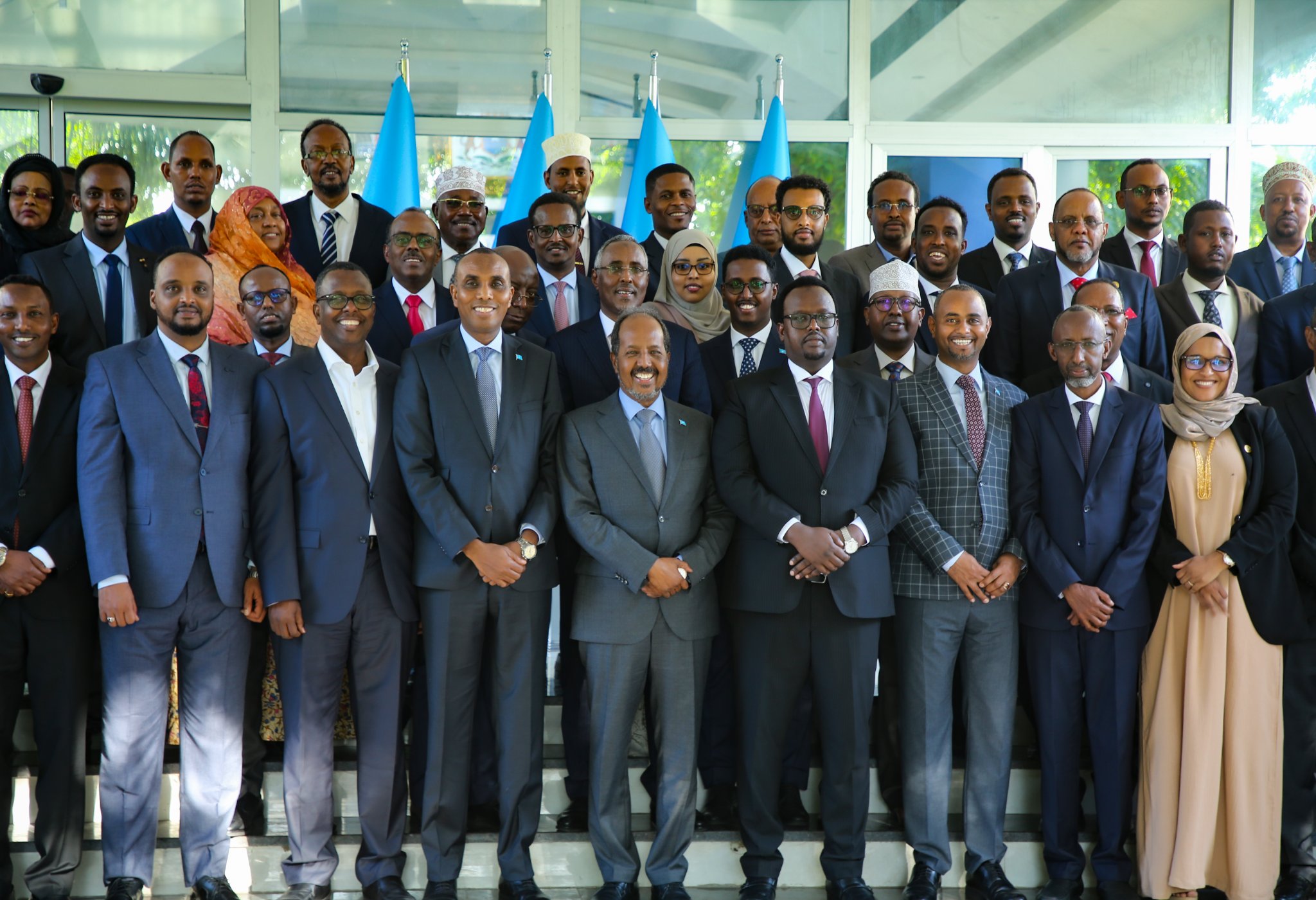The National Union of Somali Journalists (NUSOJ) welcomes the swift and overwhelming vote by the House of People of Somalia’s Federal Parliament, which endorsed the council of ministers nominated by Prime Minister Hamza Abdi Barre.
With a government in place after months of horse-trading, the country can now look forward to the systematic implementation of President Hassan Sheikh Mohamud's vision for the socio-economic transformation of Somalia, hinged on people’s fundamental rights in an open and free democratic space.
NUSOJ believes it is time to get on with the business of rebuilding Somalia, starting with the most pressing security and economic issues, enforcing a human rights agenda that is visible in terms of respect for and protection of the twin freedoms of expression and association, and purposefully transitioning the country towards full democracy. Only a Somalia in which all people are free to express their opinions and feel they have a stake can guarantee a peaceful, stable and inclusive country which all Somalis call home.
While the union expresses its support for the new dispensation, NUSOJ encourages the new government to take bold and effective steps to bring the legal regime governing media in tune with the spirit and ideals of the provisional constitution, continental norms and international standards. Media freedom is critical to facilitating citizen engagement and involvement in the affairs of their governance.
Progressive reforms and an overhaul of the moribund and discredited amended media law of 2020, as well as repealing of the outdated and draconian Penal Code, to conform to the provisions expressed in article 18 of the Provisional Constitution of Somalia, article 9 of the African Charter on Human and People’s Rights (ACHPR) and international standards on freedom of expression, must be taken up as a matter of priority. The two pieces of legislation are not only inimical to media freedom, freedom of information and journalists’ inalienable rights, but fail the test because they seek to criminalise journalism.
NUSOJ appreciates the new government’s promise to undertake the envisaged democratic reforms, and urges the government to suspend the application of these laws, declare a moratorium on the arrest and detention of journalists in their duties under the penal code, and tackle the rampant culture of impunity of crimes committed against journalists.
NUSOJ implores the new administration to give utmost priority to the enactment of the Access to Information Law as enshrined in article 32 of the Provisional Constitution which is in line with the Model Law on Access to Information for Africa by the African Union (AU). The citizens constitutional right to know, the struggle for democratic governance and the fight against corruption will be futile unless access to information is liberalized.
“We take this opportunity to remind our new Ministers and Members of Parliament that articles 18 and 32 of the constitution they swore to defend requires them to protect the rights to freedom of expression and access to information without modification. We expect nothing less than the enjoyment of these constitutional rights to the fullest. You can count on us as partners and legitimate stakeholders in efforts to rebuild Somalia across the social and economic spheres for our common good and well-being,” said Omar Faruk Osman, NUSOJ Secretary General.
“We shall not be shy to applaud the good deeds of the government. But where needed, we shall also be forthright in pointing out any deviations from the social contract that this government signed with the people of Somalia through the election processes that brought it into being,” Osman added.
In the same vein NUSOJ is calling for the immediate enactment of the Sexual Offences Bill (SOB) to criminalise the chronic and rampant violence and harassment directed at women in the media industry, workplaces and the society at large. That is necessary if the new government is to distinguish and dissociate itself from the inglorious legacy of the 10th parliament that unlawfully and unprocedurally obstructed the enactment of the SOB to the detriment of the rights of the great women and girls of this country.
“Enacting the Sexual Offences Bill will be a welcome and fundamental departure from an ugly past; will provide end to end protection to the Somali women, and will send a strong message to perpetrators of gender-based violence that they will be held accountable with the full force of the law” Osman concluded.

